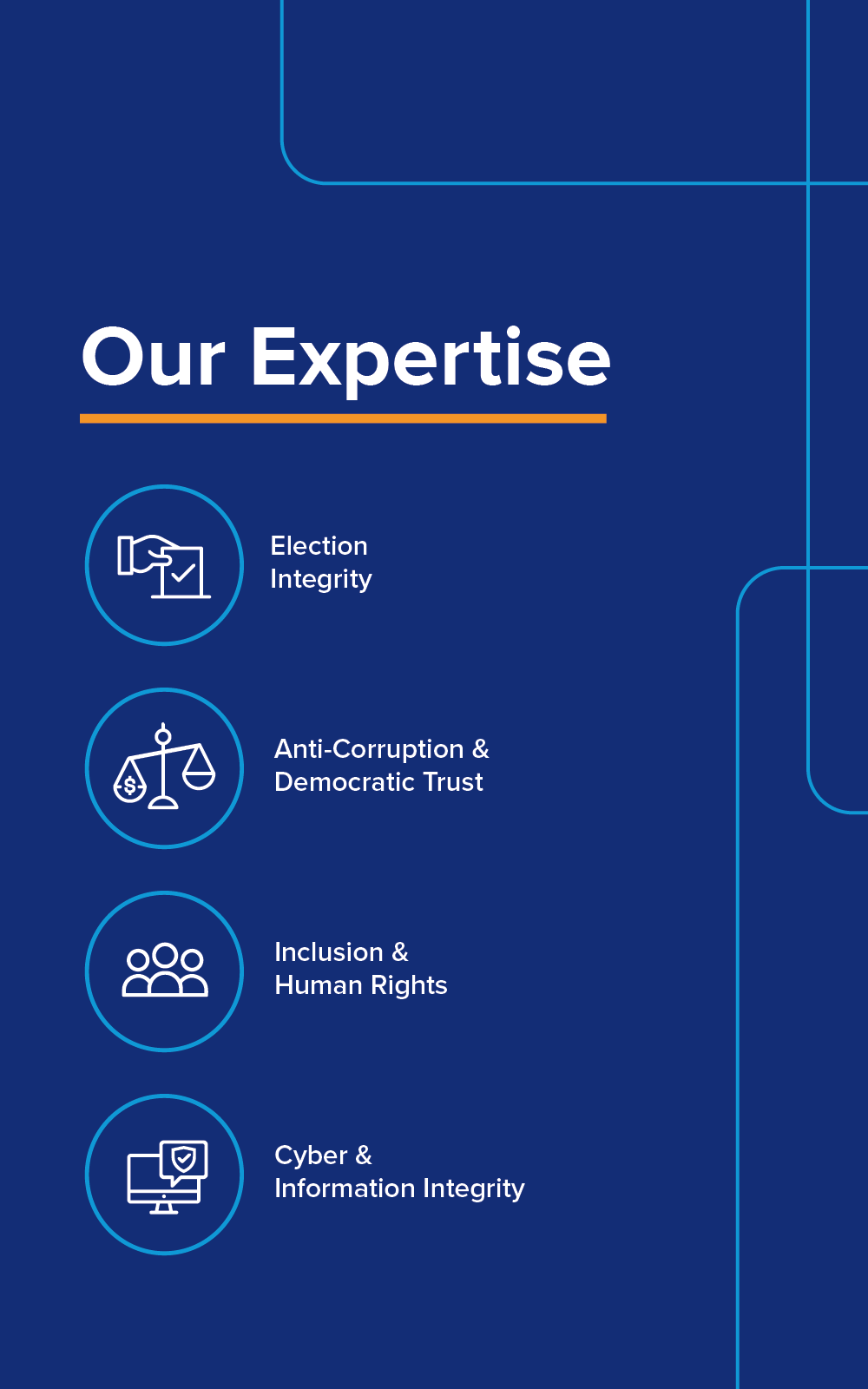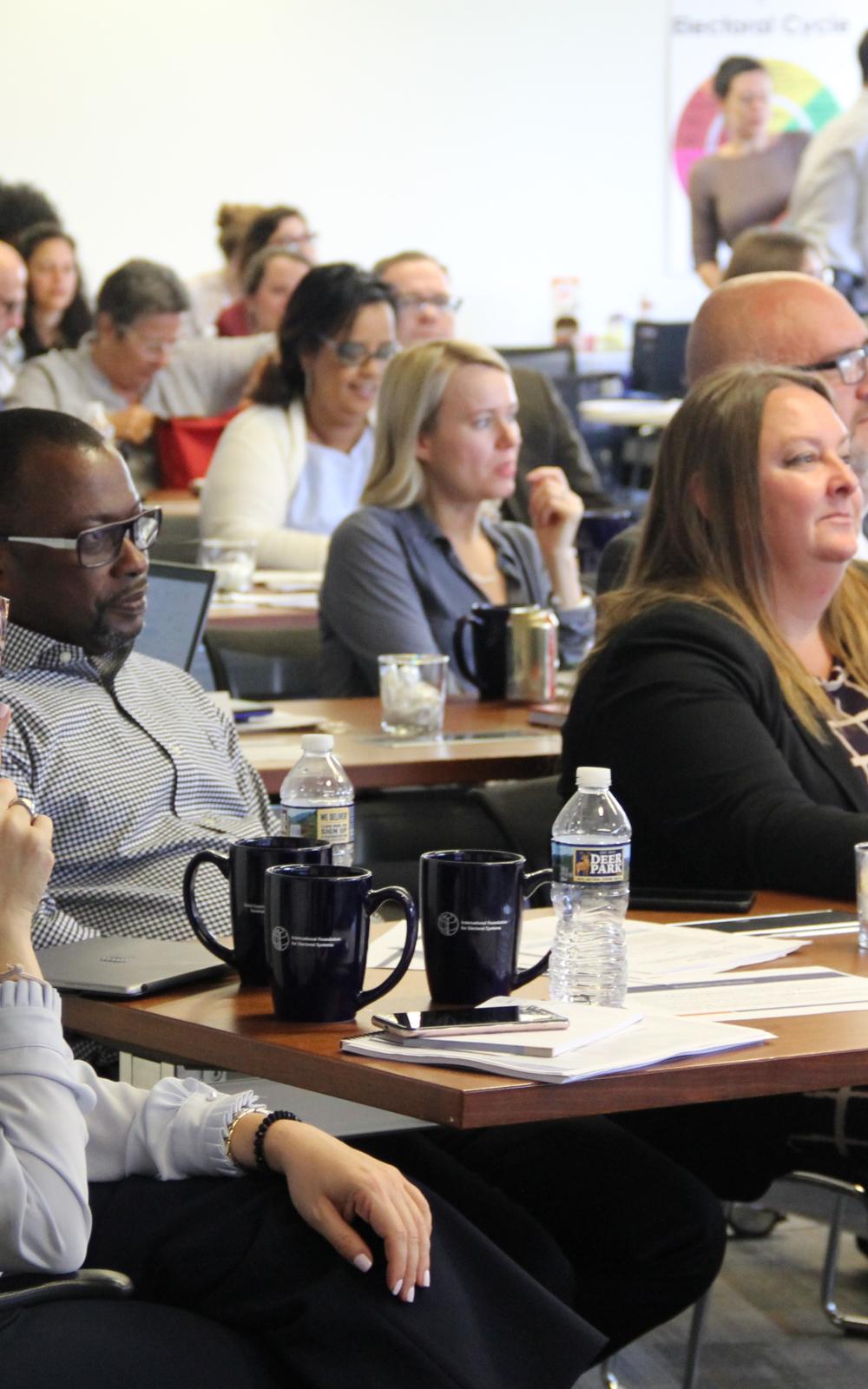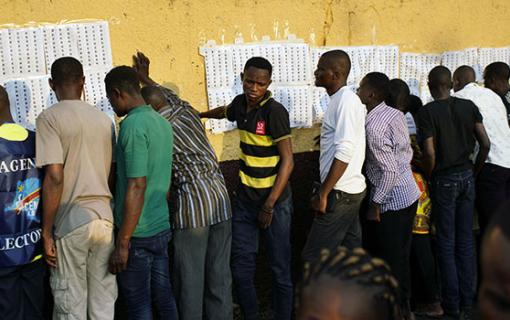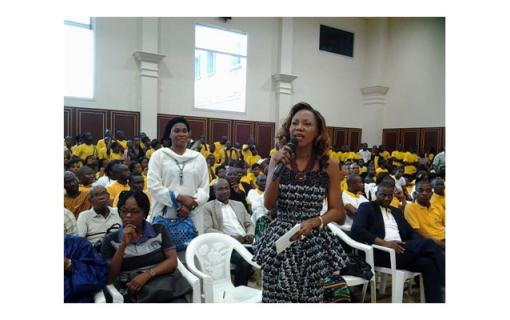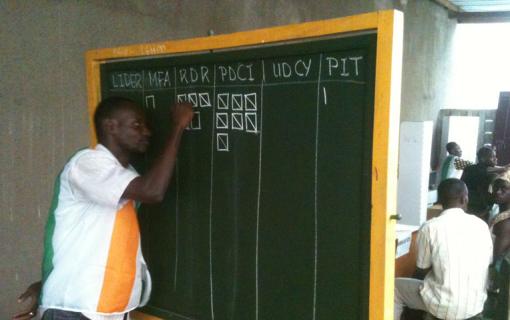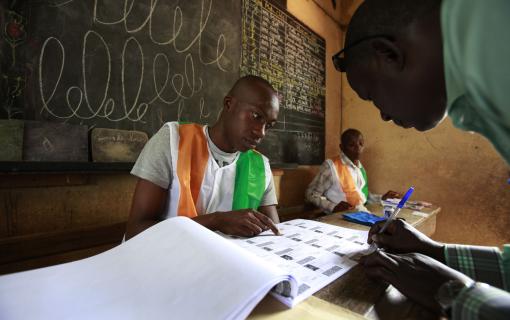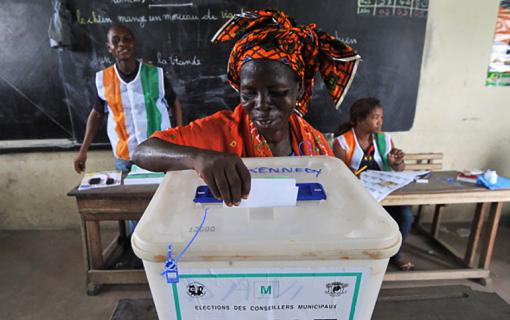Côte d’Ivoire
Since 1987, the International Foundation for Electoral Systems (IFES) has worked in over 145 countries to advance good governance and democratic rights. Although IFES is not currently engaged in programming in this country, previous work, research and/or other relevant items are highlighted below.
From 2006-2017, IFES maintained a presence in Côte d’Ivoire, primarily focused on providing technical support to the Independent Electoral Commission (CEI), facilitating stakeholder communication, and engaging Ivoirian citizens in the electoral process. Following the jarring post-election violence witnessed in 2010, IFES sought to strengthen citizens’ knowledge of and participation in the electoral process in an effort to help avoid a reoccurrence of such hostilities in future polls.
Notable activities undertaken through IFES programming include the following:
- An in-depth assessment of the Ivoirian electoral legal and regulatory framework, the results of which were a catalyst for inclusive dialogue on reform measures;
- A study in partnership with Search for Common Ground on the risks of election-related violence for the 2015 electoral season;
- Roundtable series to facilitate dialogue among the CEI, the National Institute of Statistics, international advisers and other relevant stakeholders on voter registration and electoral framework issues;
- Support to the CEI in building the body’s technical and organizational capacity, solidifying and articulating to stakeholders its mandate, and strengthening its credibility; and
- Production of 22,000 booklets titled “Guide des agents de bureau de vote” distributed to every polling station in the country.
Our Global Expertise
